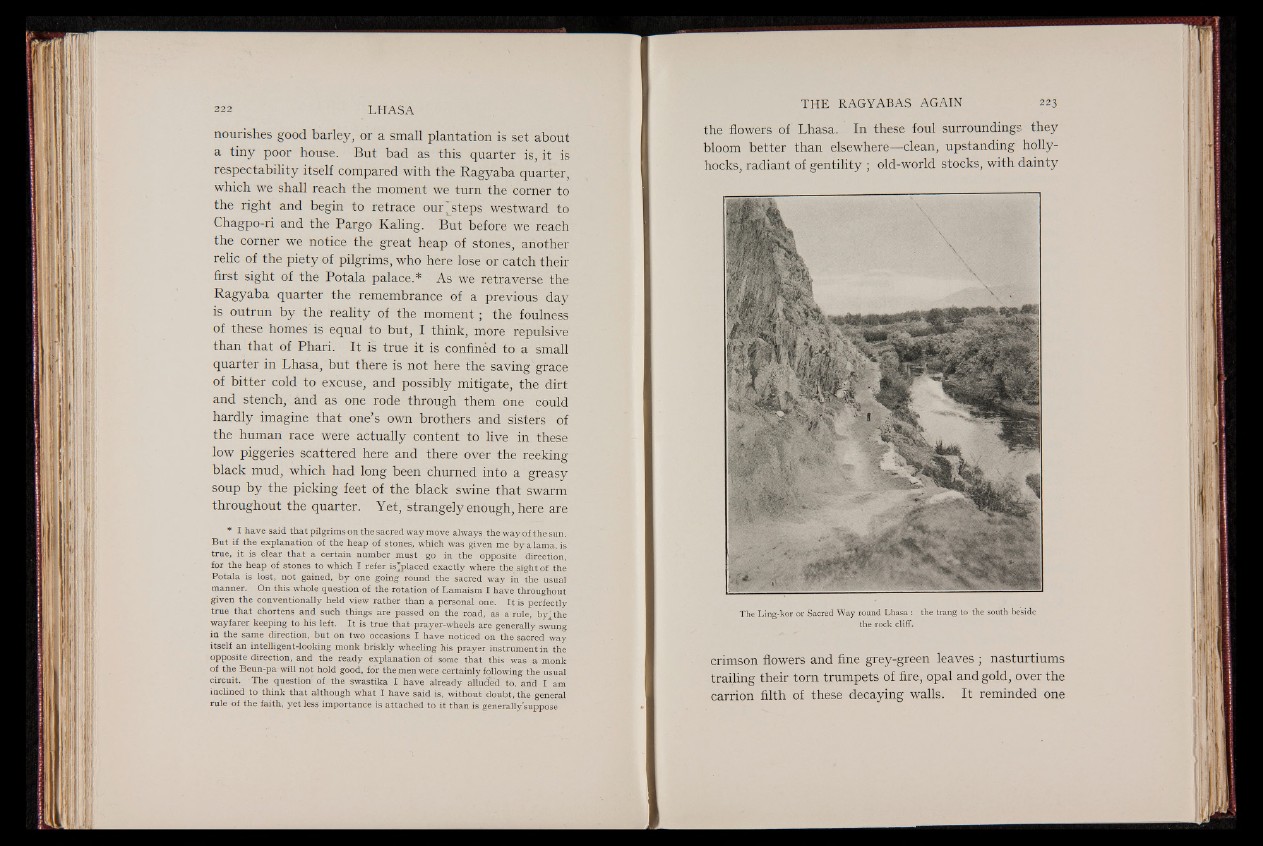
nourishes good barley, or a small plantation is set about
a tiny poor house. But bad as this quarter is, it is
respectability itself compared with the Ragyaba quarter,
which we shall reach the moment we turn the corner to
the right and begin to retrace our vsteps westward to
Chagpo-ri and the Pargo Kaling. But before we reach
the corner we notice the great heap of stones, another
relic of the piety of pilgrims, who here lose or catch their
first sight of the Potala palace.* As we retraverse the
Rngyaba quarter the remembrance of a previous day
is outrun by the reality of the moment; the foulness
of these homes is equal to but, I think, more repulsive
than that of Phari. It is true it is confined to a small
quarter in Lhasa, but there is not here the saving grace
of bitter cold to excuse, and possibly mitigate, the dirt
and stench, and as one rode through them one could
hardly imagine that one’s own brothers and sisters of
the human race were actually content to live in these
low piggeries scattered here and there over the reeking
black mud, which had long been churned into a greasy
soup by the picking feet of the black swine that swarm
throughout the quarter. Yet, strangely enough, here are
* I have said that pilgrims on the sacred w ay move always the way of the sun.
But if the explanation of the heap of stones, which was given me b y a lama, i s '
true, it is clear that a certain number must go in the opposite direction,
for the heap of stones to which I refer isjplaced exactly where thM igh t of the
Potala is lost, not gained, b y one going round the sacred way in the usual
manner. On this whole question of the rotation of Lamaism X have throughout
given the conventionally held view rather than a personal one. I t is perfectly
true that chortens and such things are passed on the road, as a rule, b y 'th e
wayfarer keeping to his left. I t is true that prayer-wheels are generally swung
in the same direction, but on two occasions I have noticed on the sacred way
itself an intelligent-looking monk briskly wheeling his prayer instrument in the
opposite direction, and the ready explanation of some that this was a monk
of the Beun-pa will not hold good, for the men were certainly following the usual
circuit. The question of the swastika i have already alluded, to, arid I am
inclined to think that although what I have said is, without doubt, the general
rule of the faith, yet less importance is attached to it than is generally suppose
the flowers of Lhasa. In these foul surroundings they
bloom better than elsewhere—-clean, upstanding hollyhocks,
radiant of gentility ; old-world stocks, with dainty
The Ling-kor or Sacred Way round Lhasa : the trang to the south beside
the rock cliff.
crimson flowers and fine grey-green leaves ; nasturtiums
trailing their torn trumpets of fire, opal and gold, over the
carrion filth of these decaying walls. It reminded one